How to soundproof a bedroom – five easy and affordable fixes for a quiet night's sleep
These expert hacks seal out noise so you can fall asleep fast



Learning how to soundproof a bedroom can often be essential if you live near a busy main road, or in a city centre. You can't always control the noise outside, but fortunately, you can control how much gets into your bedroom when you're trying to sleep.
Soundproofing your bedroom works in two ways – it can stop you from being disturbed by noises from outside your home (including noisy neighbours), and it can also prevent sounds from inside your home from travelling through the floors and windows to disturb your slumber.
Whether it's adding in some smart bedroom curtain ideas to deaden the noise, or you need a more hardy solution such as sound-proofing panels. We've rounded up some expert tips to help you sleep better.
How to soundproof a bedroom
We spoke to soundproofing experts, as well as interior designers, for their tips on how you can adjust your bedroom ideas so that you're able to get a quiet night's sleep.
1. Stop street sounds disturbing you
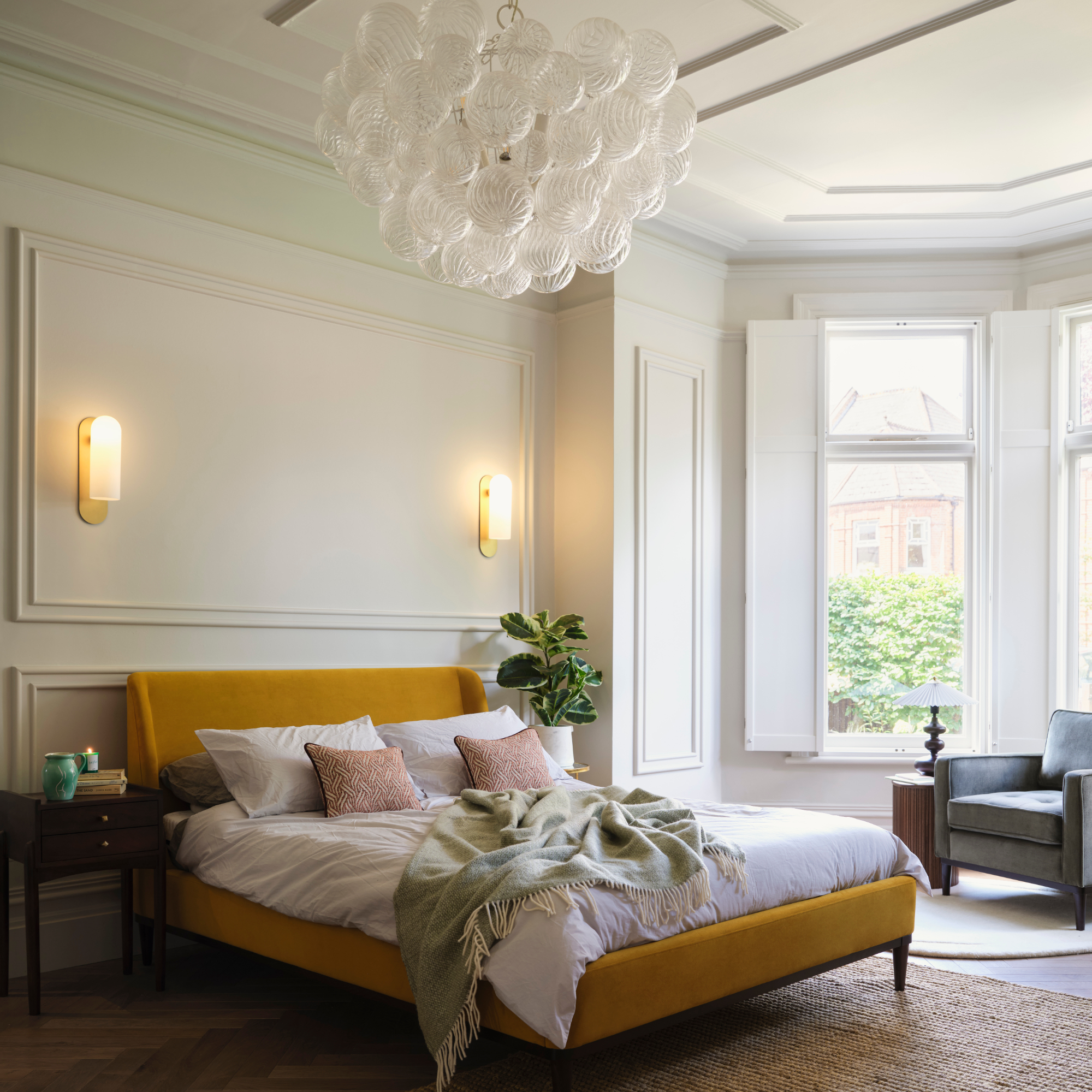
Double and triple glazing are your ultimate weapon when it comes to stopping sounds travelling from outside to disrupt your sleep patterns. But you don't need to install new windows to reduce noise floating into your bedroom, sometimes simply learning how to draught-proof windows can do the trick.
'Sound can enter your home through small gaps and cracks in windows, doors and walls. What's more, these gaps are a primary cause of heat loss in homes. By sealing these openings, you can create a warmer and quieter environment,' explains Grant Fraser, director of London SoundProofing.
'Don’t overlook the areas around pipes and wires that enter the house, and use high-quality caulk or weatherstripping to seal them,' Grant continues.
Get the Ideal Home Newsletter
Sign up to our newsletter for style and decor inspiration, house makeovers, project advice and more.
2. Add noise-reducing window treatments
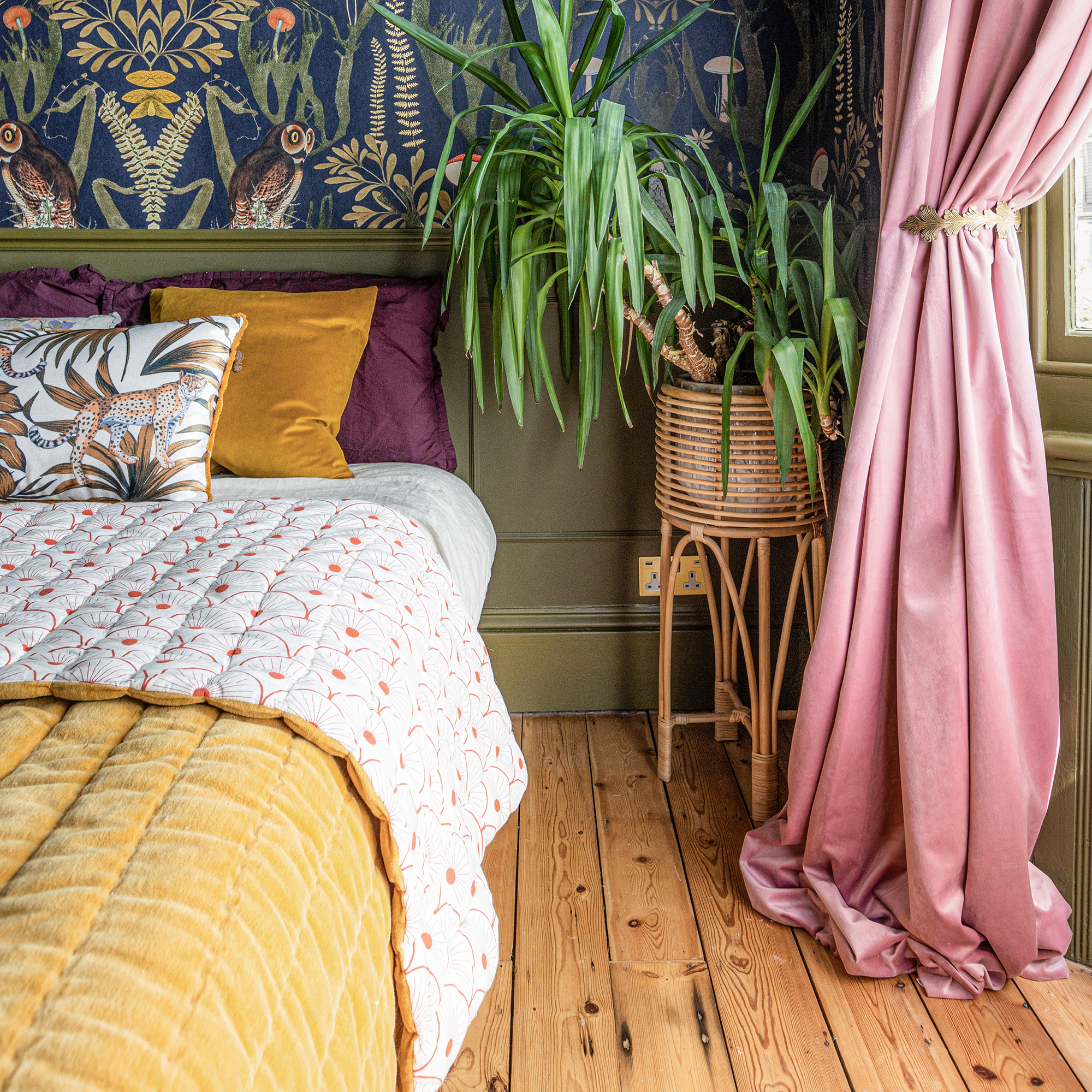
The bedroom curtains and bedroom blind ideas you choose can be key in soundproofing your sleep space. 'If you are lucky and have deep window reveals, shutters can be an excellent place to start,' suggests interior designer Lucinda Griffith, founder of Lucinda Griffith Design Consultancy.
'For the best noise reduction, choose curtains over blinds, and always include a good interlining. Ideally, you should also make them full length as that will certainly help to muffle sound.'

Lucinda has worked in the interior design industry for more than 20 years. She set up her design consultancy in 2006 to provide accessible and affordable advice to help people tailor their house to their needs, taste and style.
3. Add acoustic panels to absorb sound
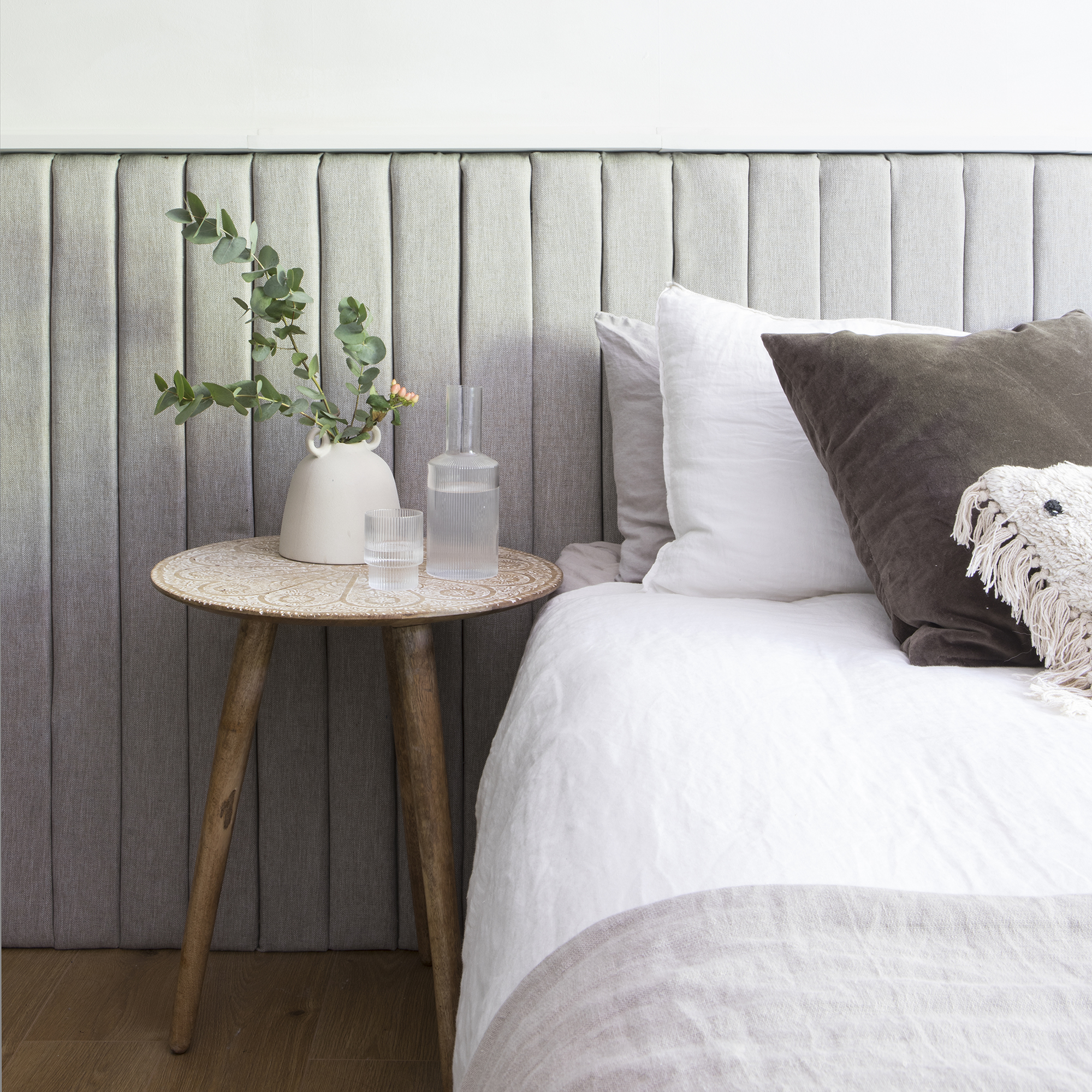
There are lots of bedroom wall panelling ideas that can provide an additional soundproof layer to create a quiet sanctuary for you to sleep in. This might be a classic tongue-and-groove design that covers walls and ceilings for a cabin-style room, traditional wood panels below a dado rail, or contemporary geometric panels that add a graphic design element to your bedroom decor. You can layer sound-absorbing foam panels behind your decor panelling for extra 'ssshh' factor.
For a professional approach to soundproof panelling, interior designer and design psychology coach Rebecca West, recommends acoustic wooden wall panels. The Quiet Mark-certified WoodUpp Akupanel is an acoustic wooden slat wall panel that adds serious style credentials to any space.
4. Take a quiet approach to flooring
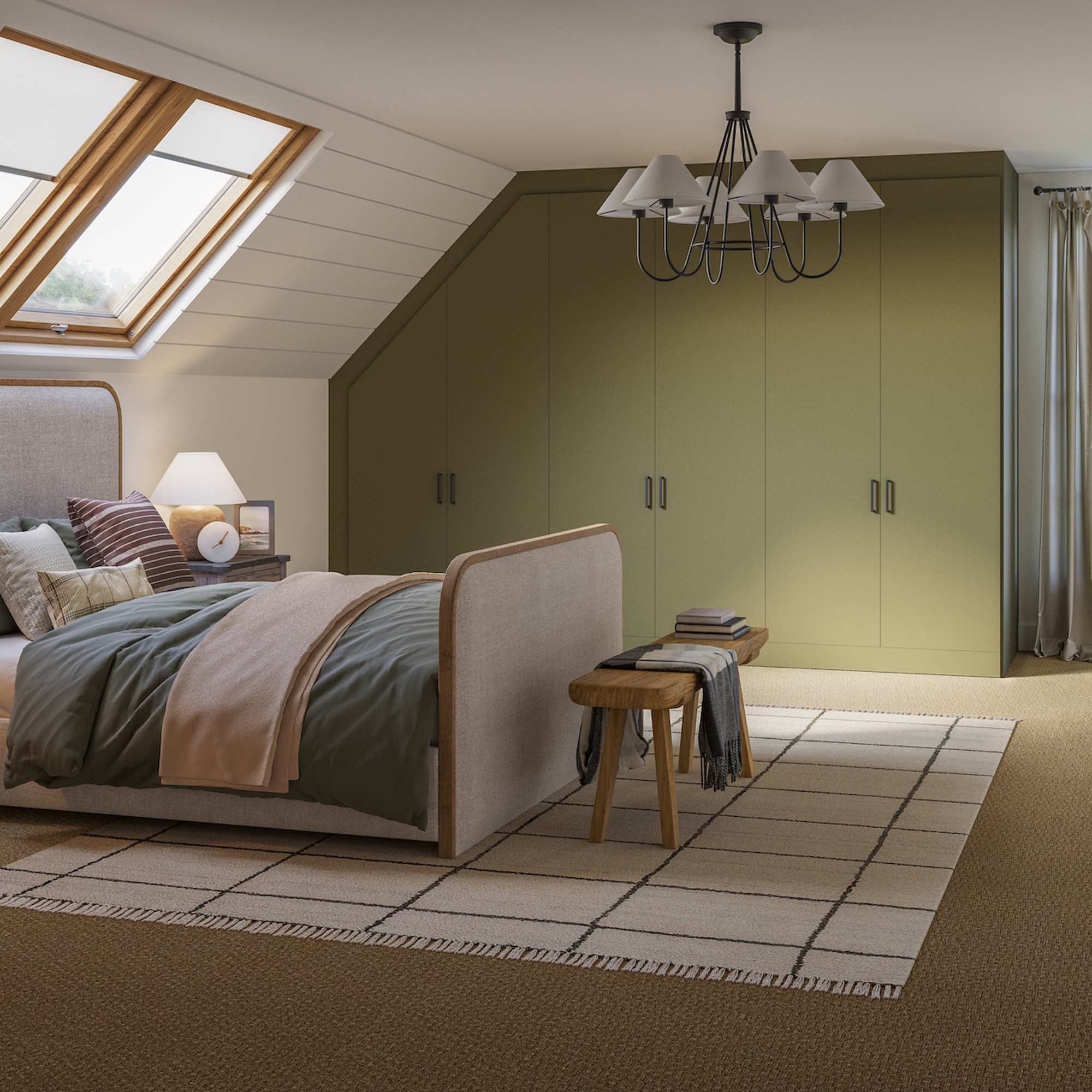
Most of us prefer to have softer bedroom flooring, whether that's a carpet or soft rugs underfoot. But the benefits go beyond keeping bare feet feeling cosy. 'Soft flooring makes a difference as it helps the acoustics,' explains interior designer Lucinda Griffith. 'If wall-to-wall carpet is not an option, then rugs will help (although not nearly as effectively as carpet will).'
Don't hold back when it comes to bedroom rug ideas. Layering them, laying a large rug beneath the bed, or choosing thickly textured, dense rugs, will all help to stop floors echoing as you walk over them, and stop sounds transmitting through the floor from the room below.
5. Block out sound with a solid door
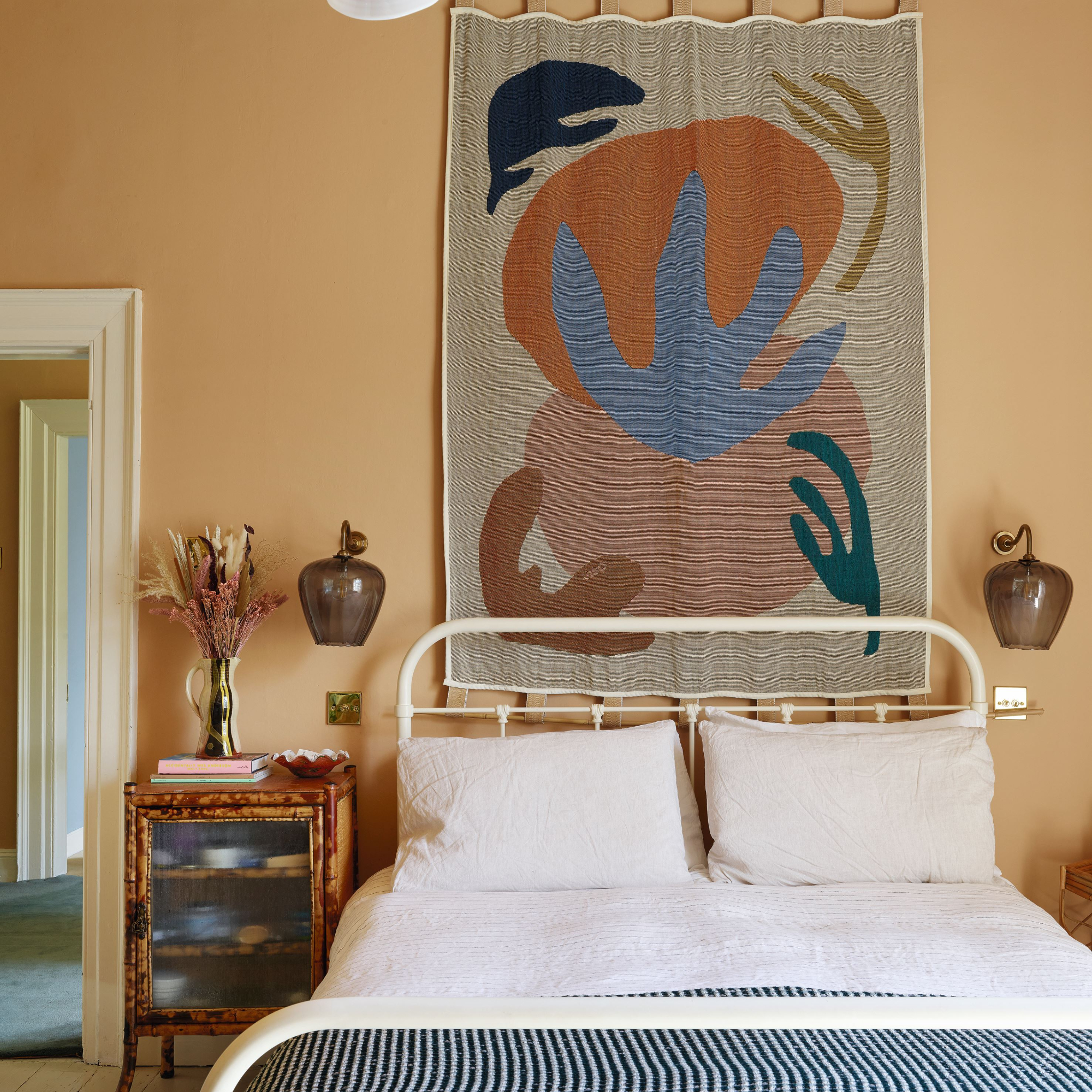
All doors are not created equal. While they may look very similar, there's a big difference between a solid wooden door and one that's simply constructed from two thin panels with not much in between. The solid version will cost more, but the expense may be worth it to get a decent night's rest.
'A solid door on the bedroom, rather than a hollow one, can stop noise creeping in from elsewhere in the house,' confirms Lucinda Griffith.
Watch out for gaps beneath the door and around the door frame, and even cracks in the panelling of older doors. It is important to know how to draught-proof doors to prevent not only sound from seeping into your bedroom but also heat from escaping.
'Caulking not only reduces noise levels but can help decrease your energy bill by preventing air leaks,' explains Grant Fraser from London SoundProofing. 'Caulking is a fairly easy DIY task and can provide an extra layer of insulation along the edges of your doors and windows. Using weatherstripping or a door sweep to seal the bottom gap, will help prevent noise and cold air from seeping in and warm air from escaping.'
FAQs
How do I soundproof my room cheaply?
The answer to this is very dependent on where the noise is coming through into your bedroom and how bad it is. If it's coming through the gaps in your windows this is the cheapest option as you can pick up weather-proofing strips and even secondary glazing film from Robert Dyas for under £20. However, if that isn't the case your next best option is to look into soundproofing curtains which you can pick up for as little as £25 on Amazon.
If you need an instant fix to soundproof your bedroom today, there is also the option to not spend any money at all and see if relocating a rug into your bedroom and bookshelves to help absorb the sound will help.

Andrea began her journalism career at Ideal Home and is currently Editor of our sister title, Country Homes & Interiors, which celebrates modern country style. Andrea is passionate about colour and how it can transform both our homes and our sense of wellbeing, and has completed The Power of Colour course with the prestigious KLC School of Design. Andrea's career spans interiors magazines, women's lifestyle titles and newspapers. After her first job at Ideal Home, she moved on to women's magazines, Options and Frank. From there it was on to the launch of Red magazine, where she stayed for 10 years and became Assistant Editor. She then shifted into freelancing, and spent 14 years writing for everyone from The Telegraph to The Sunday Times, Livingetc, Stylist and Woman & Home. She was then offered the job as Editor of Country Homes & Interiors, and now combines that role with writing for idealhome.co.uk.
-
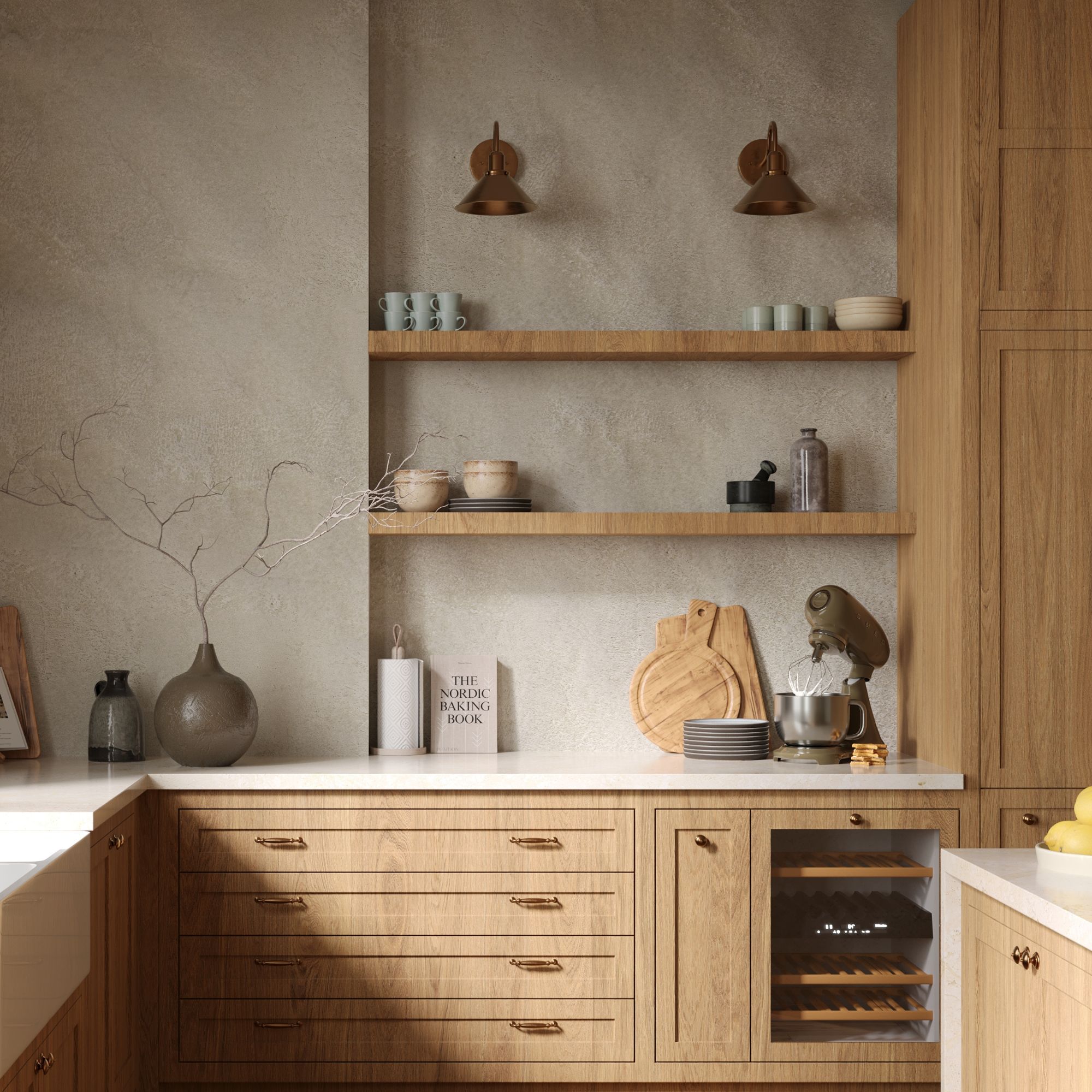 Wood drenching is the calming new twist on the colour drenching trend – here’s how to make the look work in your home
Wood drenching is the calming new twist on the colour drenching trend – here’s how to make the look work in your homeIt’s easier than ever to embrace natural materials
By Maddie Balcombe
-
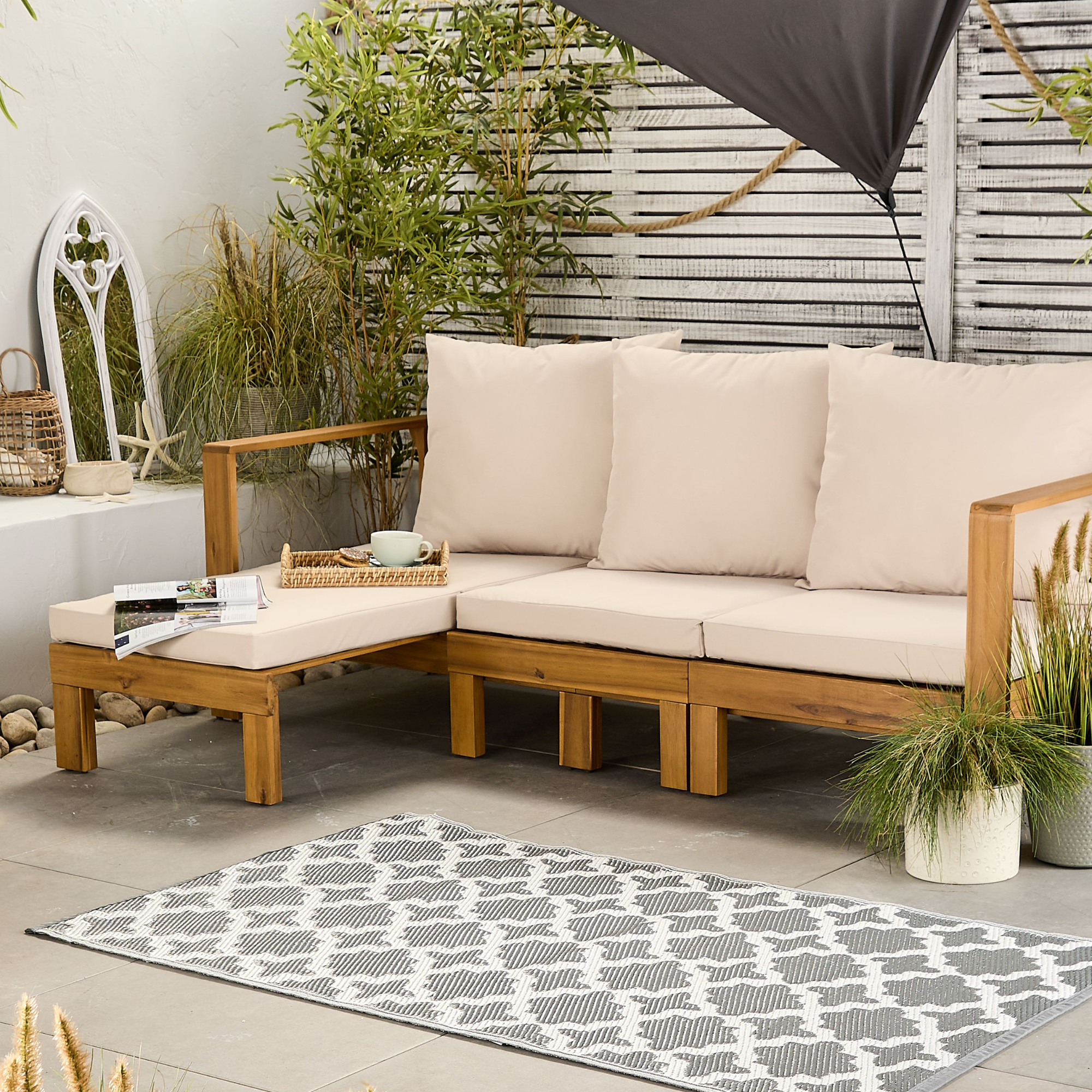 Aldi is launching a £200 day bed with four different features - its sleek design is suited to the whole family
Aldi is launching a £200 day bed with four different features - its sleek design is suited to the whole familyYou don't want to miss out on this Specialbuy
By Kezia Reynolds
-
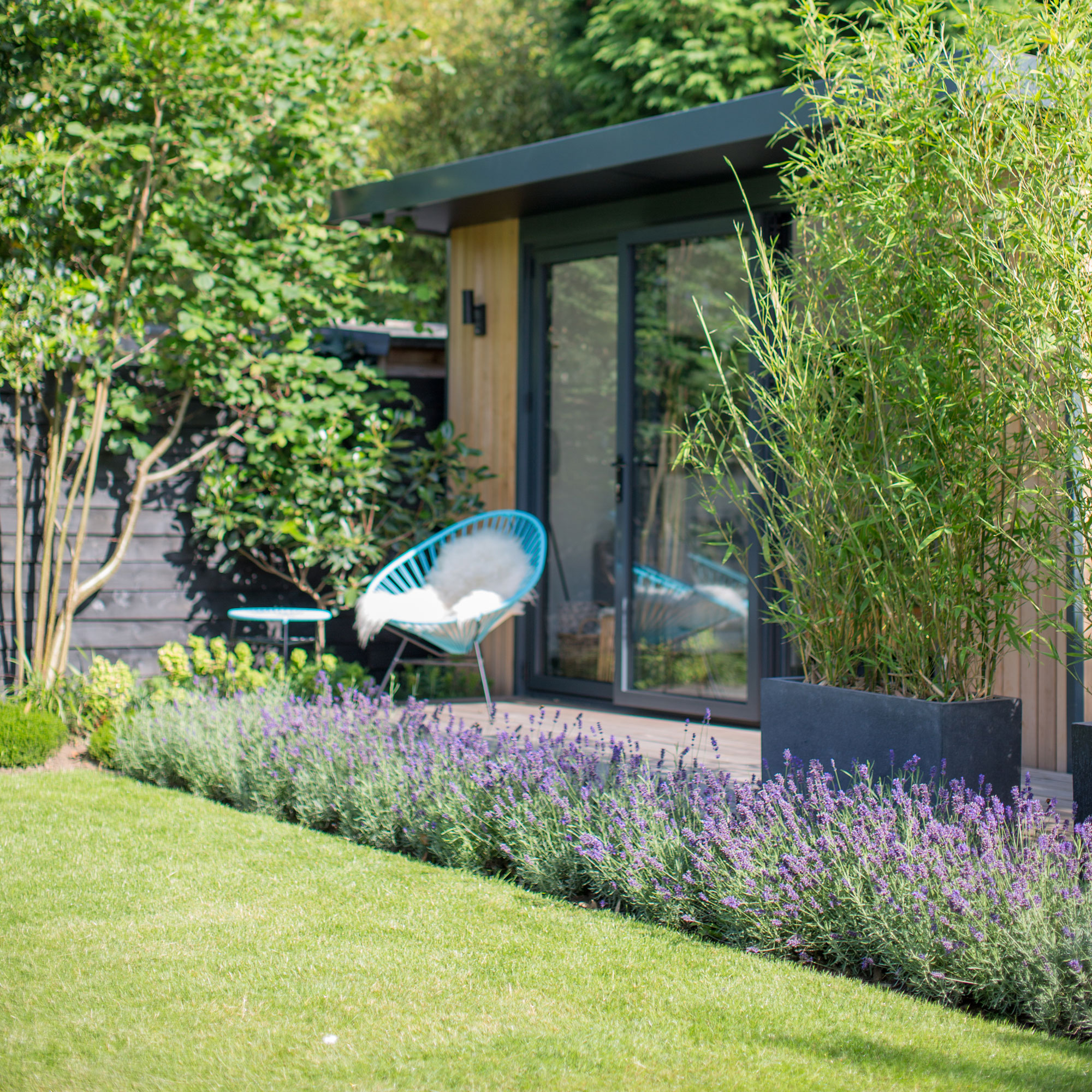 How to set up a drip watering system that saves water and a lot of effort
How to set up a drip watering system that saves water and a lot of effortKeep your plants hydrated (and your water bill down) with this clever garden watering solution
By Natalie Osborn
-
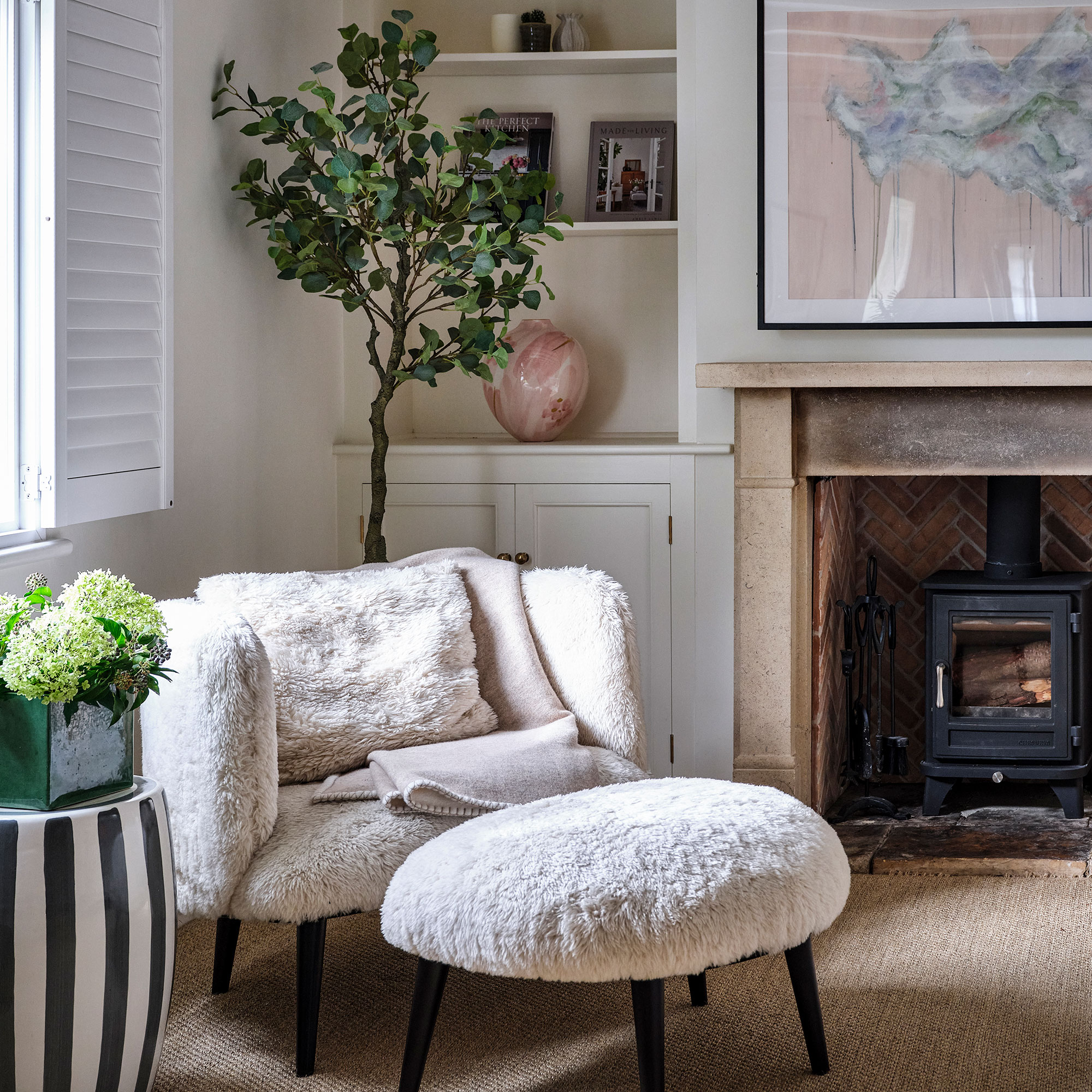 Hygge living room ideas — 6 ways to warm up your home with this Danish concept and cosy aesthetic
Hygge living room ideas — 6 ways to warm up your home with this Danish concept and cosy aestheticHunker down until summer finally arrives with these warming ideas
By Rebecca Knight
-
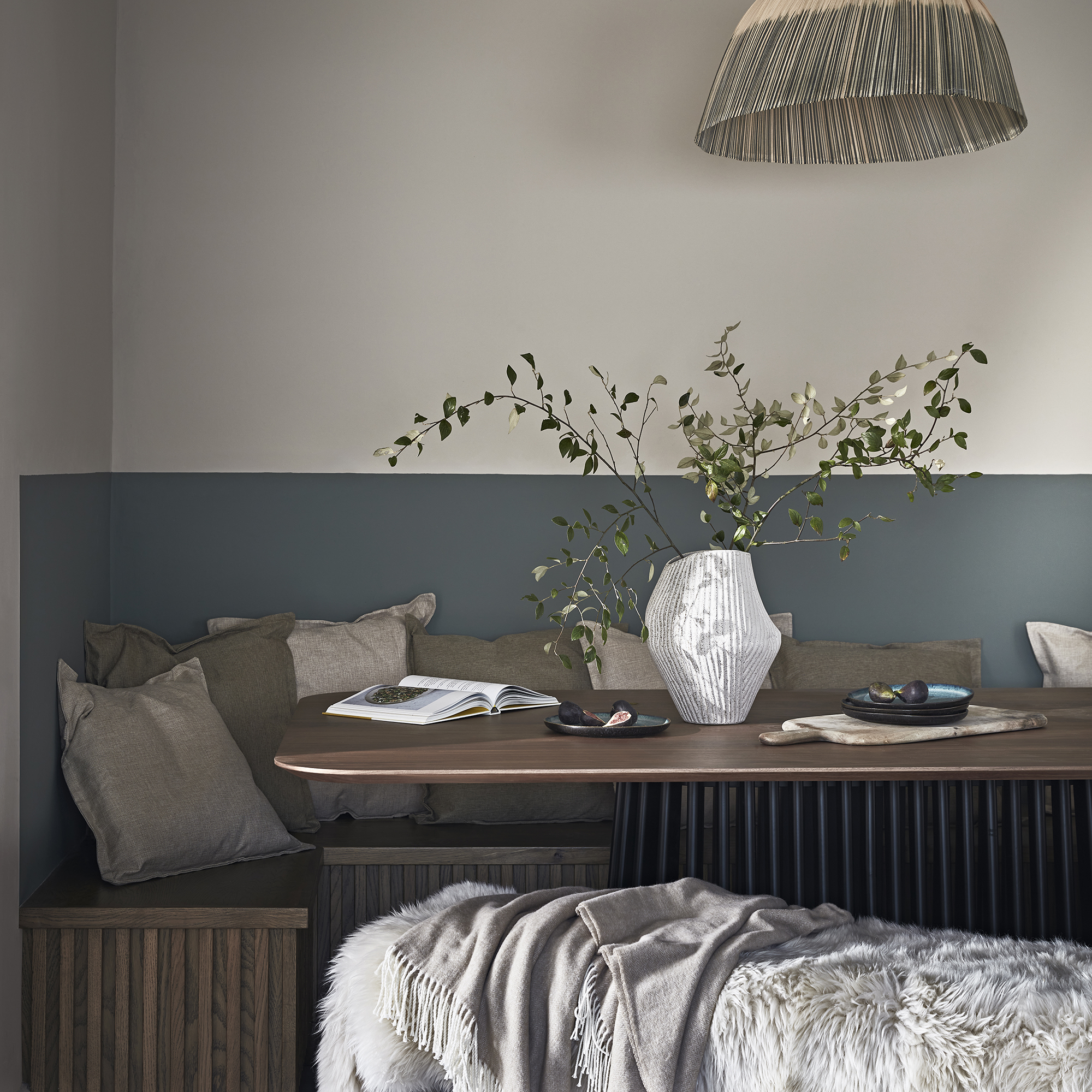
 How to create a sensory home – interiors experts reveal 5 easy ways to style your home and soothe your mind
How to create a sensory home – interiors experts reveal 5 easy ways to style your home and soothe your mindYou can turn any space into a sanctuary by following these simple steps
By Maddie Balcombe
-
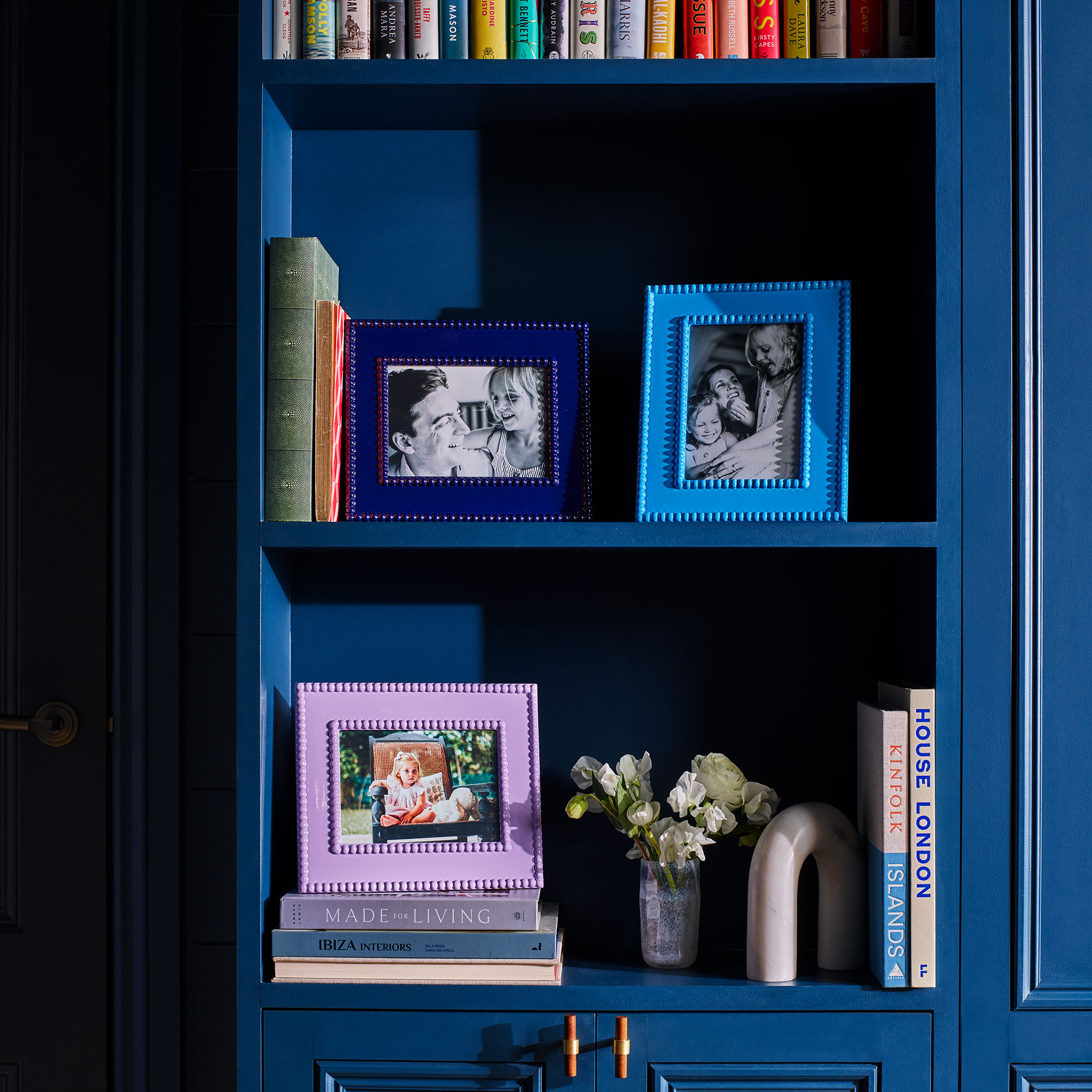
 Can displaying family photos at home make you happier? According to research it can — 5 ways to do it in style
Can displaying family photos at home make you happier? According to research it can — 5 ways to do it in styleHarness the mood-boosting power of looking through old photos by displaying your favourites
By Rebecca Knight
-
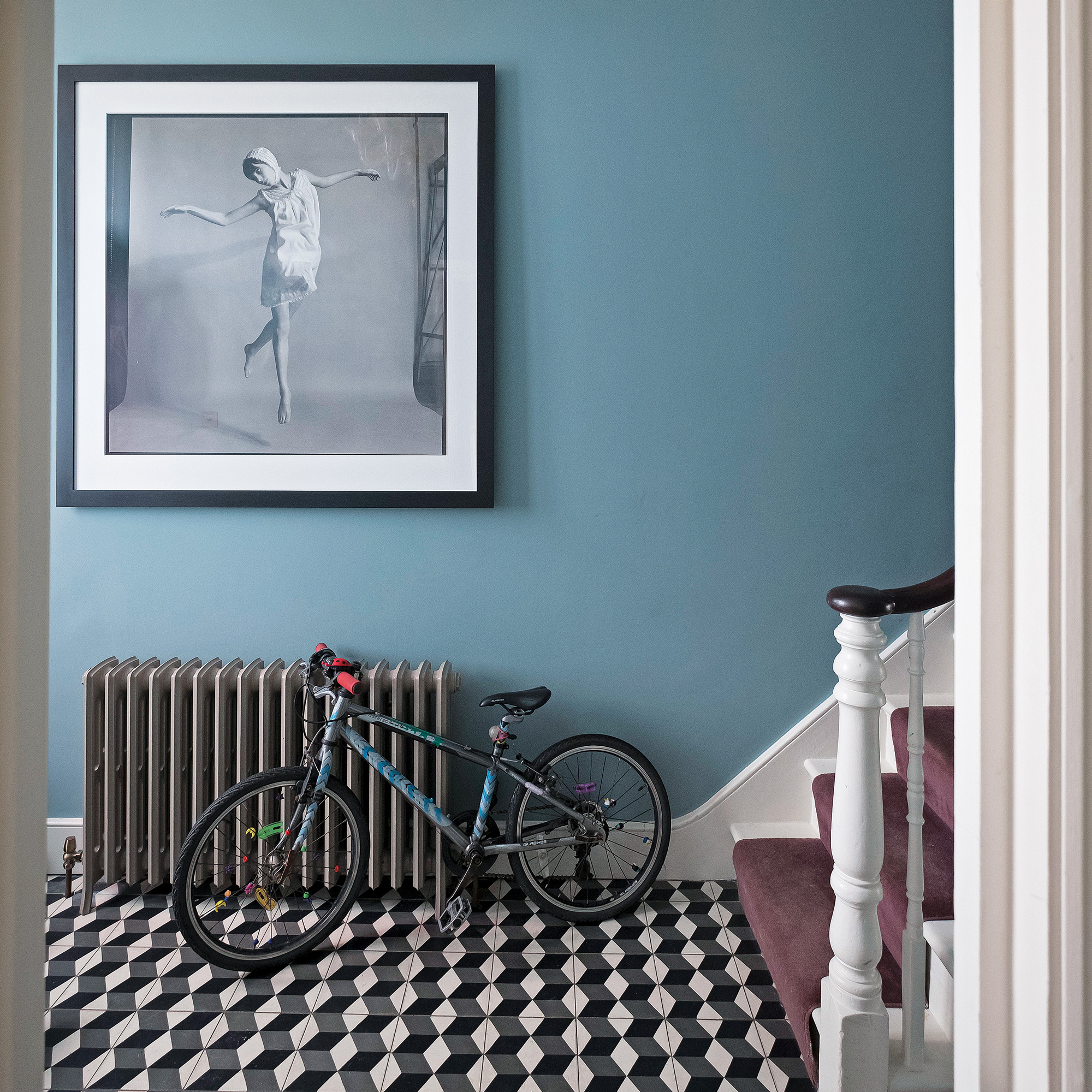 How to make a hallway smell incredible without candles - 7 ways to gently fragrance your entranceway
How to make a hallway smell incredible without candles - 7 ways to gently fragrance your entrancewayGo flame-free to safely scent your entryway
By Vanessa Richmond
-
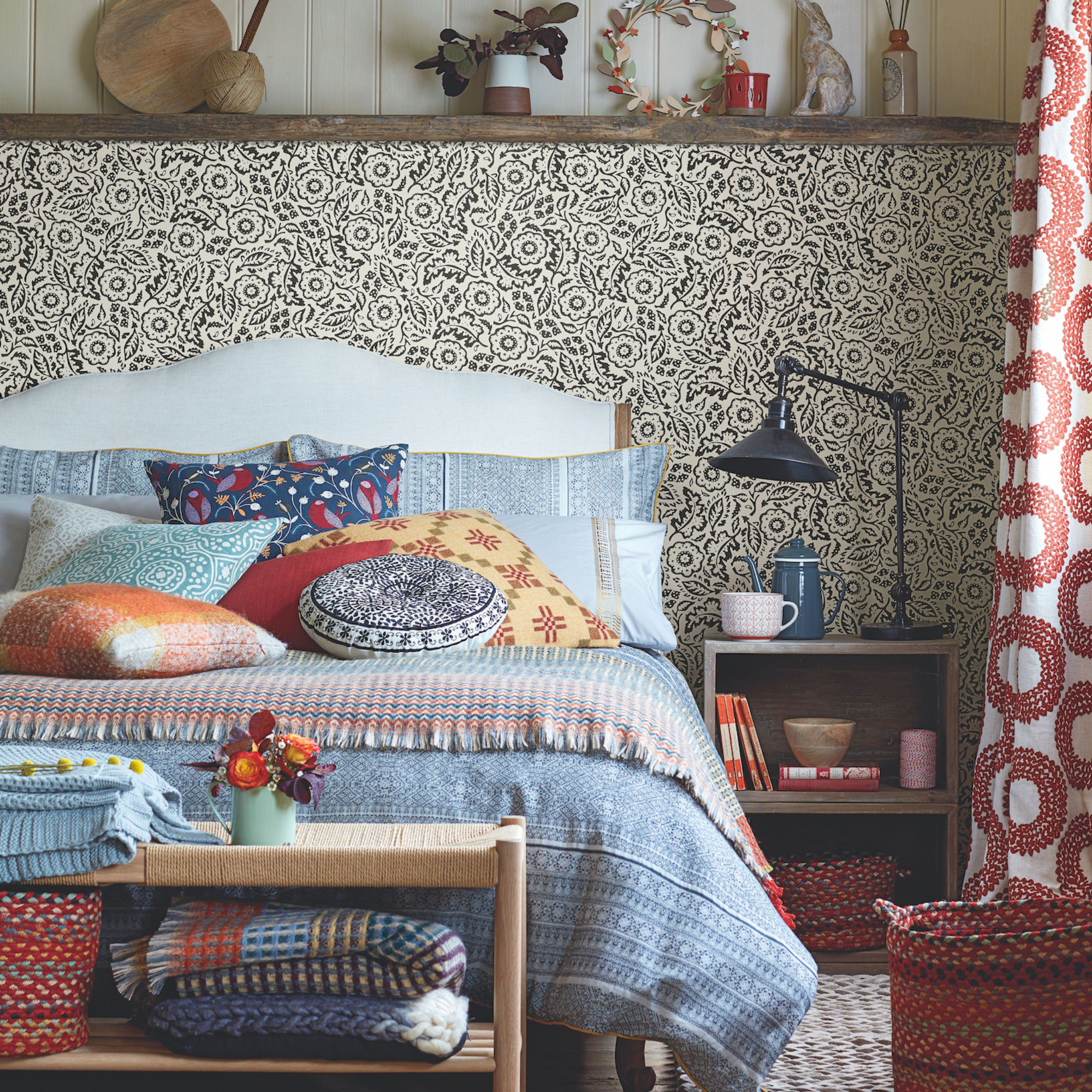 6 ways I brighten my home in January when the Christmas decorations come down, as an interior stylist
6 ways I brighten my home in January when the Christmas decorations come down, as an interior stylistHelp banish the winter gloom with these uplifting ideas
By Laurie Davidson
-
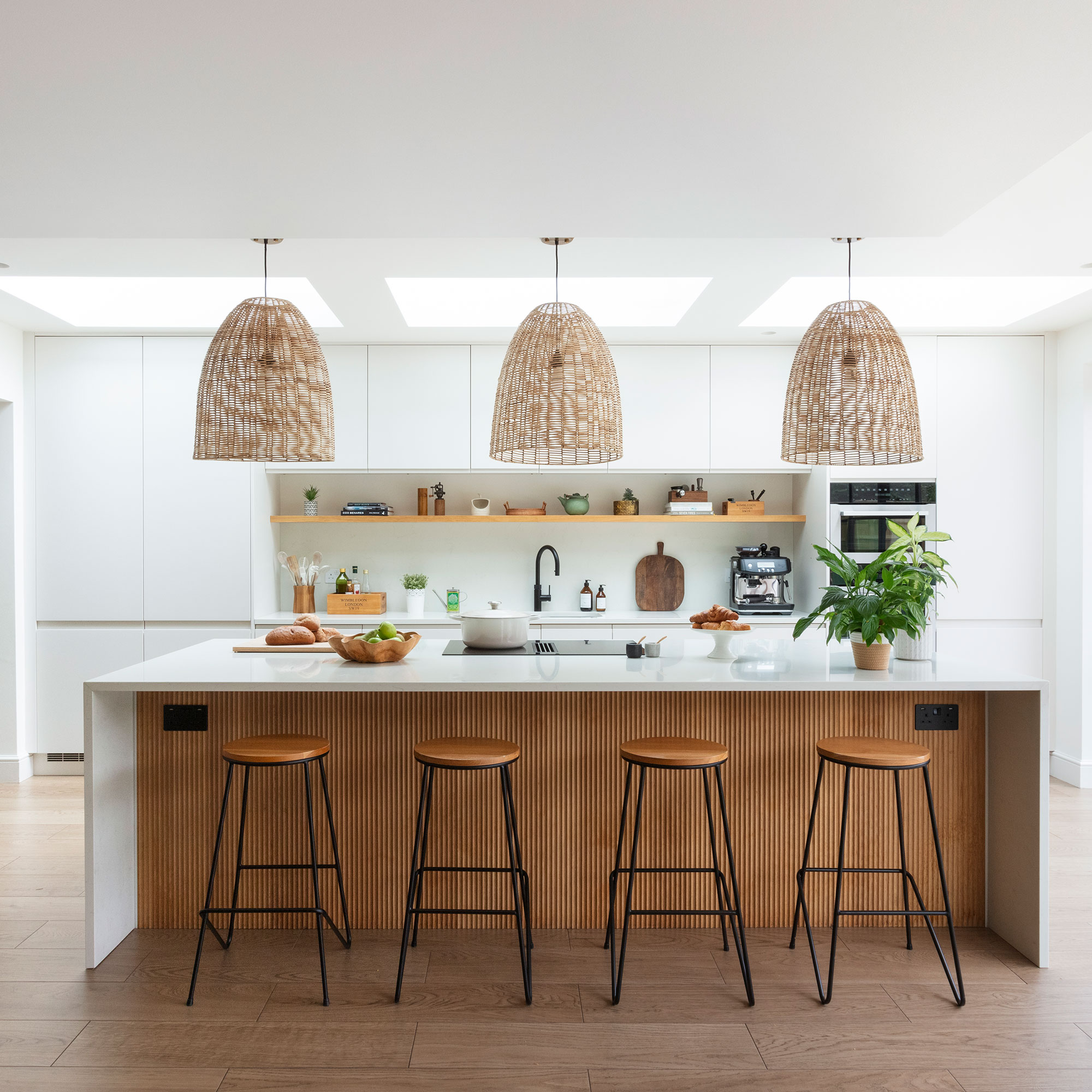 Kitchen hacks to encourage healthy eating habits — 7 ways your kitchen can support healthy living
Kitchen hacks to encourage healthy eating habits — 7 ways your kitchen can support healthy livingMake creating healthy changes easy by following these tips
By Eilidh Williams
-
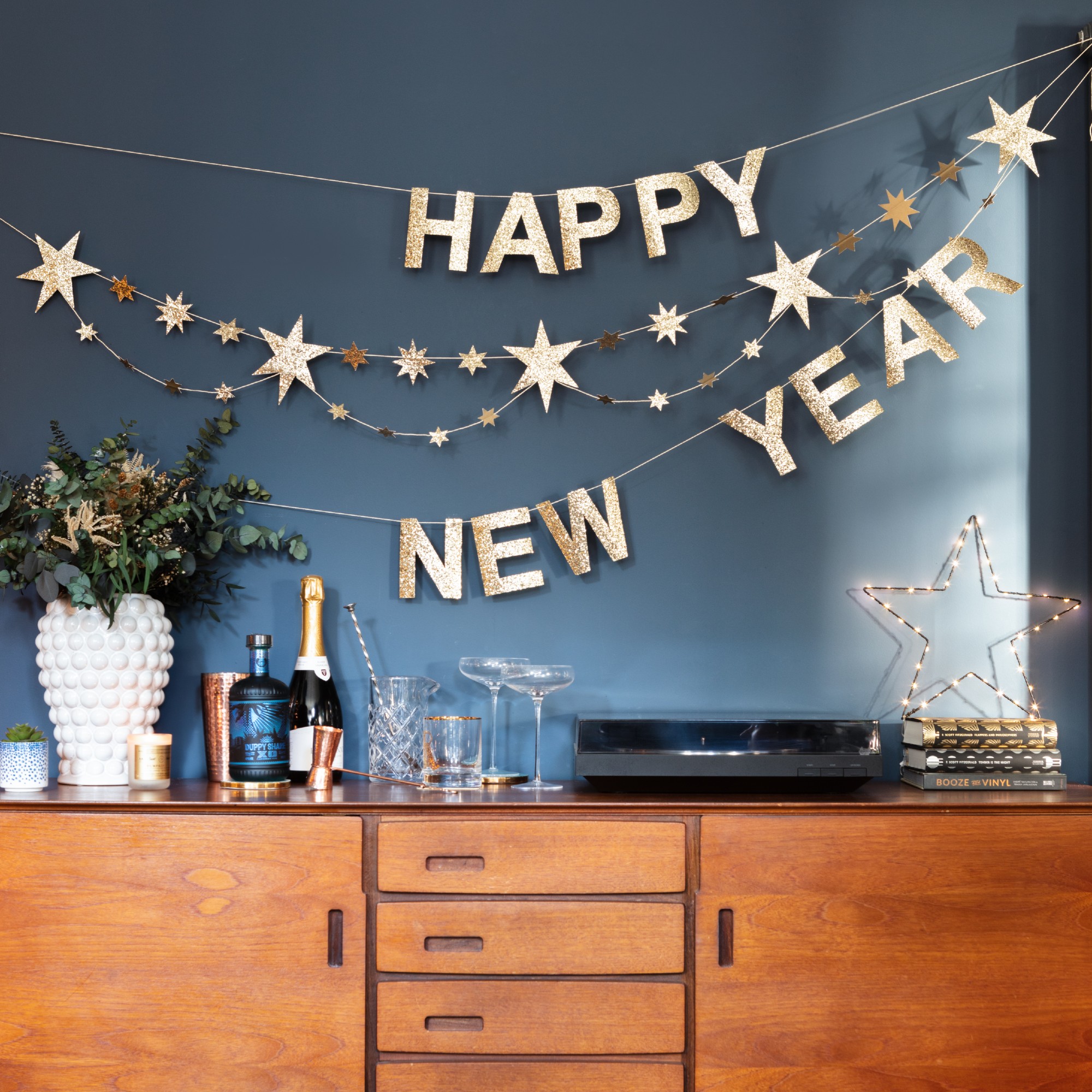 How to reset your home after Christmas to restore a sense of calm
How to reset your home after Christmas to restore a sense of calmFollow these 7 steps to get back to normal at home and beat post-Christmas blues
By Eilidh Williams
-
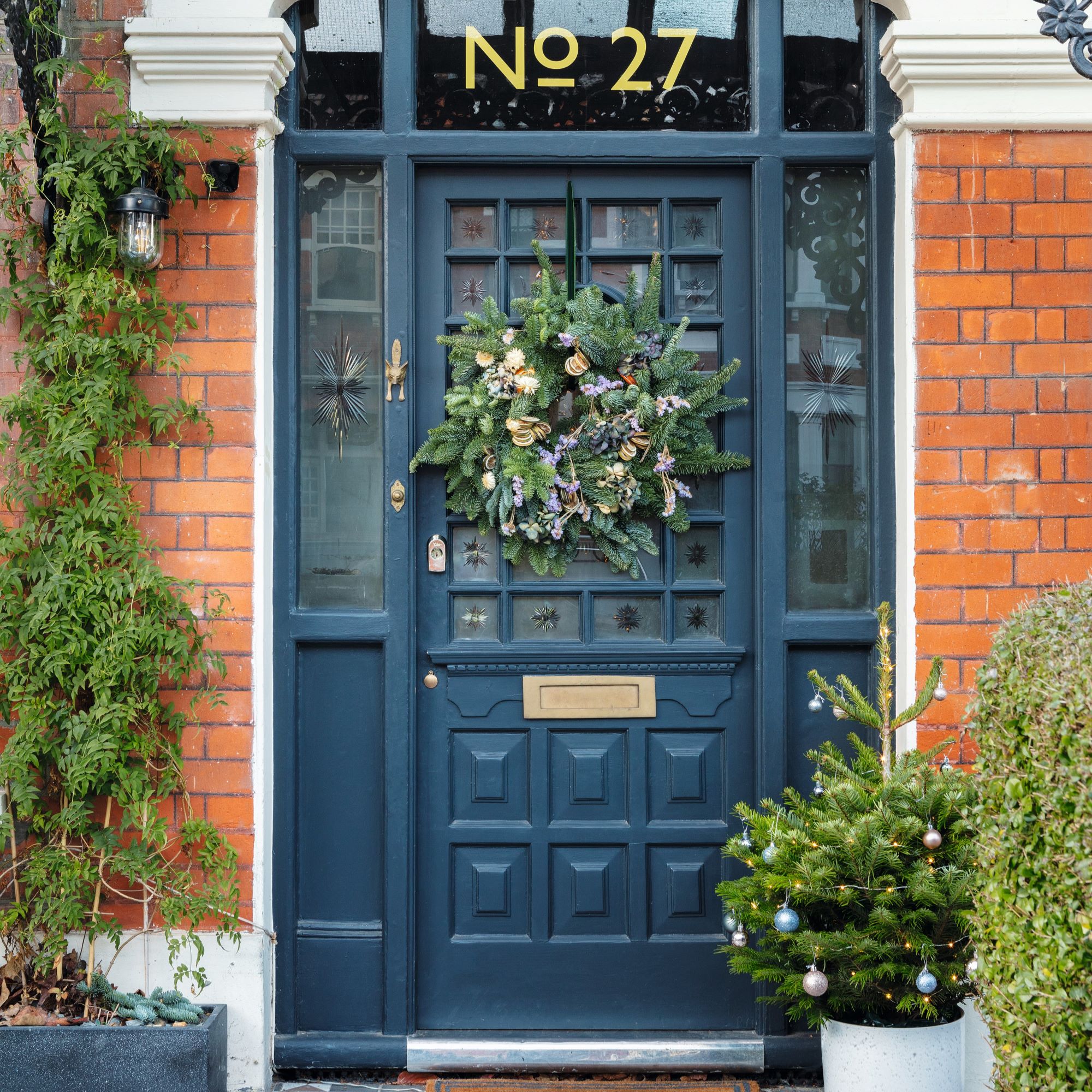 How to make a house look more inviting - 8 ways to quickly boost your house’s appeal in time for Christmas
How to make a house look more inviting - 8 ways to quickly boost your house’s appeal in time for ChristmasMake visitors feel welcome from the second they step foot on your property
By Vanessa Richmond